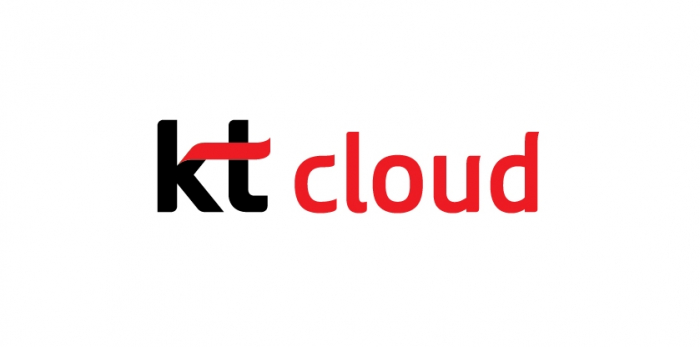Cloud computing
KT ups ante with $1.5 billion spending on public sector cloud service
Other local rivals such as Naver and NHN are also set to bulk up to compete in the fast-growing cloud market
By Jul 29, 2022 (Gmt+09:00)
3
Min read
Most Read
LG Chem to sell water filter business to Glenwood PE for $692 million


Kyobo Life poised to buy Japan’s SBI Group-owned savings bank


KT&G eyes overseas M&A after rejecting activist fund's offer


StockX in merger talks with Naver’s online reseller Kream


Mirae Asset to be named Korea Post’s core real estate fund operator



KT Cloud Corp., a unit of South Korea’s telecom giant KT Corp., plans to spend up to 2 trillion won ($1.5 billion) over the next three years to enhance its presence in the domestic public cloud service sector, a growing niche market.
During a recent meeting with institutional investors, KT Cloud also said it will aggressively expand its internet data center (IDC) capacity with funds it plans to raise through an initial public offering and other fund-raising efforts.
Earlier this month, the company said it has begun construction of a 26-megawatt data center in Geumcheon, southern Seoul, with an aim to secure a total of 100 MW data center capacity by 2025 to handle fast-growing data traffic.
The latest investment plan is much larger than its announcement in June that it will invest 1.7 trillion won in IDC, the core part of cloud infrastructure, over the next five years.
KT Cloud, spun off from its parent KT Corp. in April, currently operates four IDCs in Korea and one in the US state of California.

CLOUD SOLUTIONS FOR PUBLIC INSTITUTIONS
KT’s decision to expand its IDC capacity comes as its local rivals are joining forces with other cloud service providers to develop customized cloud solutions for state-run organizations.
Last week, five local firms – SK Broadband Inc., Naver Cloud Corp., AhnLab Inc., TmaxOS Co. and Hancom Inc. – forged a strategic partnership to roll out cloud PC services for smart work in Korea’s public institutions.
Korea is pushing for public institutions and administrative agencies' cloud transformation as part of a government-led digital innovation project.
Naver Cloud, a unit of online portal giant Naver Corp., is the country’s largest homegrown cloud service provider.
It is currently hiring dozens of developers and engineers to expand its cloud service business.

NHN Cloud, spun off from its parent NHN Corp. in March, is also hiring cloud talent to compete with its domestic and foreign competitors.
A cloud service is any service available to users on demand via the internet from a cloud computing provider’s server as opposed to the company’s own on-premises server.
Cloud services are designed to provide easy, scalable access to applications, resources and services, and are fully managed by cloud service providers. Cloud computing is generally used to describe Internet data centers or IDCs.
TOUGH COMPETITION
According to tech research and consulting firm Gartner, Korea’s cloud market is expected to grow to 10.2 trillion won by 2025 from 6.5 trillion won this year.

Korean cloud service providers’ aggressive business expansion comes as bigger foreign rivals are joining the local market amid intensifying competition.
Last November, Snowflake Inc., a US big data cloud provider, announced its entry into the Korean market to offer cloud-based data warehousing and analytics service, generally termed “data warehouse-as-a-service.”
Snowflake’s Data Cloud runs on all three major cloud platforms – Amazon’s AWS, Microsoft Azure, and Google Cloud Platform – and can accommodate massive, near-endless data repositories.
Foreign companies are already dominant players in Korea, with the big three accounting for over 90% of the Korean service market.
Analysts, however, say that Korean players have the edge over their foreign rivals in the public sector cloud service market as most foreign companies don’t meet the Korean government’s security requirements such as network separation to prevent data leaks and customer information theft.
“The public sector is a land of opportunity for Korean cloud companies, a bridgehead with which they can better compete with bigger foreign rivals,” said an industry official.
Write to Jeong-Soo Hwang at hjs@hankyung.com
In-Soo Nam edited this article.
More to Read
-
 Cloud computingSK, Naver to launch cloud services for Korean public institutions
Cloud computingSK, Naver to launch cloud services for Korean public institutionsJul 21, 2022 (Gmt+09:00)
2 Min read -
 Tech, Media & TelecomSamsung SDS joins hands with Amazon for global cloud business
Tech, Media & TelecomSamsung SDS joins hands with Amazon for global cloud businessFeb 18, 2022 (Gmt+09:00)
1 Min read -
 Korean startupsKT to join MBK, IMM in Megazone Cloud's $400 mn funding
Korean startupsKT to join MBK, IMM in Megazone Cloud's $400 mn fundingFeb 15, 2022 (Gmt+09:00)
2 Min read -
 Tech, Media & TelecomSnowflake’s entry into Korea to intensify cloud service competition
Tech, Media & TelecomSnowflake’s entry into Korea to intensify cloud service competitionNov 10, 2021 (Gmt+09:00)
3 Min read -
 Tech, Media & TelecomForeign cloud service providers led by Amazon, MS play big in Korea
Tech, Media & TelecomForeign cloud service providers led by Amazon, MS play big in KoreaSep 25, 2020 (Gmt+09:00)
3 Min read
Comment 0
LOG IN


